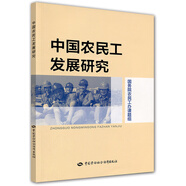重塑中國農民形象:趙本山小品研究(1995-2000年)簡介,目錄書摘

傳統中國文化作品中的農民形象多是負面的。而趙本山1995-2000年間在央視春節聯歡晚會上演的系列小品,從正面的角度全面重塑了中國農民形象,具有重要的文化意義。
Ⅰ Chinese Peasantry Presented in Traditional Chinese Culture
1 Images of Peasantry in The Four Books
2 Images of Peasantry in Chinese Idioms/Fables
3 Images of Peasantry in Other Literary Works
4 Literature on Peasants' Insurgence
5 Images of Peasantry in Popular Culture
Ⅱ Power in Popular Culture and Branding Characteristics
1 Current State of Cultural Studies
2 Mechanisms of Popular Culture
(1) Language
(2) Contradictions and Complexity
(3) Conformity versus Subversion
(4) Humor, Guerrilla Strategy, and Appropriation
(5) Setting, Context, Theme
3 A Brief Account of Zhao Benshan's Comic Sketches
Ⅲ Methodology
Ⅳ Structure
Ⅴ Selection
Chapter One: Articulating for the Chinese Peasants
Ⅰ Power and Representation: Images and Stereotypes
Ⅱ Zhao's CSs as Power Front for the Peasants
Ⅲ Significant Themes of Zhao' s CSs
1 Aspects of Amelioration and Brightness of Peasant Life
2 Unfavorable Images of Peasants
Ⅳ General Strategies in Zhao's CS
Chapter Two: The Linguistic Complexity
Ⅰ Dialect and Colloquialism: Micro Narration for
Macro Culture
Ⅱ Humor: Shortcut in Confrontations
Ⅲ Tones, Intonation, and Purposeful Misuse of Language
Ⅳ Governing Principle: Relevance
Ⅴ Linguistic Power: Driving Toward the Goal
Chapter Three: Cultural Ambivalence
Ⅰ Contexts: Ideological and Cultural Implications
Ⅱ Conformity: Endorsing Ontological Ideologies
Ⅲ Subversion: Empowering the Powerless
Ⅳ Romanticizing the Margins
Chapter Four: Can the Chinese Peasants Speak?
Ⅰ Preconditions for Effective Articulation:Language and Knowledge
Ⅱ Can the Chinese Peasants Speak?
Ⅲ Can Zhao Speak for the Chinese Peasants?
laslon
Bibliography
References in English
References in Chinese
Major Films and Websites
Appendix A: Three of the Quoted Fables and Idioms
Ⅰ The Foolish Old Man and the Wise Man
Ⅱ The Farmer Who Abandoned His Cattle
Ⅲ The Rich Man Who Wanted One More Sheep
Appendix B: A Brief CV of Zhao Benshan and His
Major Works
Appendix C: Scripts for Four of Zhao's Comic Sketches
Ⅰ 紅高粱模特隊 (1997)
(Red Sorghum Models)
Ⅱ 拜年 (1998)
(Spring Festival Call)
Ⅲ 昨天、今天、明天 (1999)
(Yesterday, Today, and Tomorrow)
Ⅳ 鐘點工 (2000)
(Odd Job)







 京公網安備 11000002000088號
京公網安備 11000002000088號